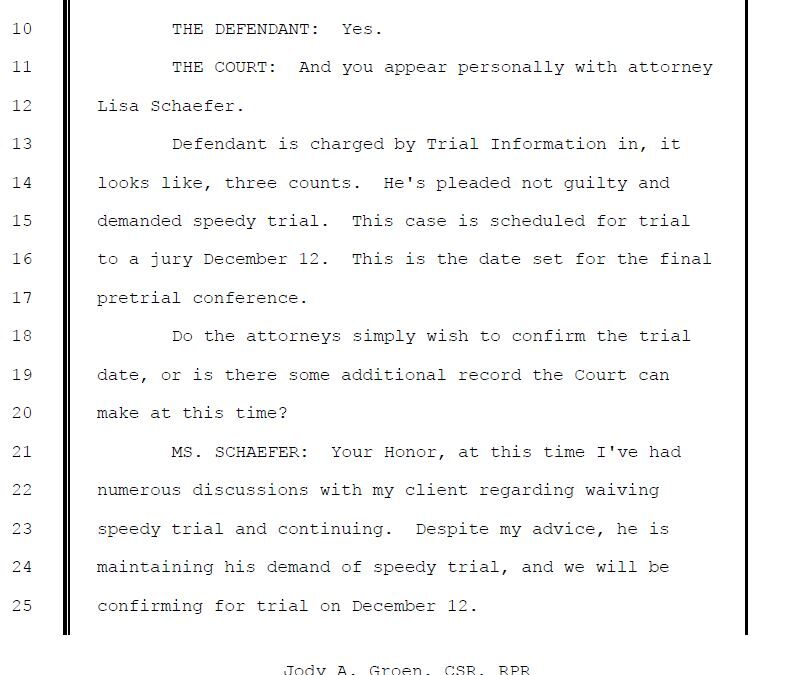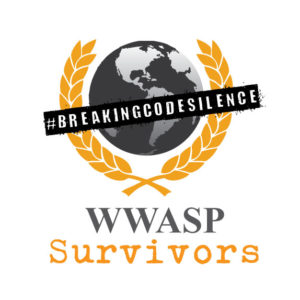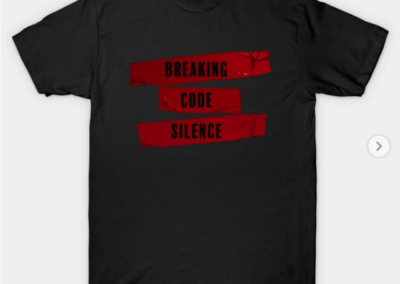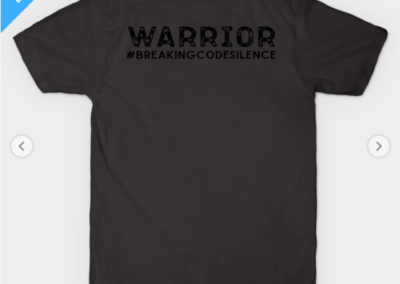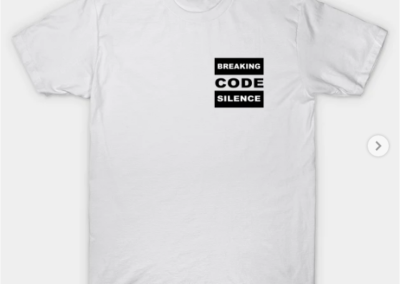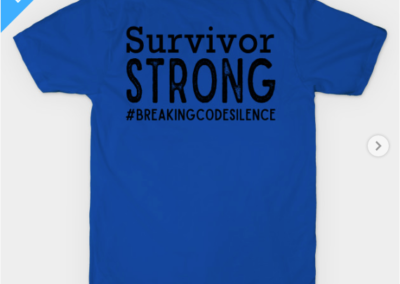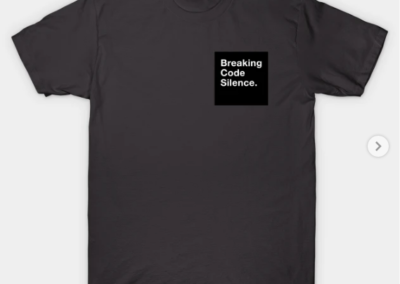In this part of the sentencing, we’re going to review the testimony of Ben Trane’s original lawyer, Lisa Schaefer.
Parrish (Ben Trane’s new lawyer) attempts to grill Schaefer on how late they received a digital copy of the school records received a few weeks before the trial. While this did make this harder for both Ben and Schaefer to go through all the records in time, it should be noted that Ben Trane asked for the trial to be fast tracked against the advice of Schaefer who told him they would not have as much time to prepare if he chose to fast track it. “Ineffective counsel” is a hard argument to make when the defendant shoots himself in the foot by not giving his lawyer extra time to prepare a defense for him. It also should be noted that they’re just discussing the fact that they couldn’t go through all this evidence – not that there was a silver bullet proving Ben’s innocence hidden somewhere in the hard drive.
Q. All right. And your billing records–you had filed a motion with the Court to bring in what–well, you had filed an application with the Court to pay for whats known as a hard drive; is that correct?
A. Yes.
Q. And this hard drive, who had possession of it?
A. At what time?
Q. At any point in time before you got involved in the case?
A. Before I got involved in the case?
Q. Yes.
A. The copy that I had?
Q. No. The copy that you requested the Court–that you needed to prepare for your defense?
A. Before I got in the case, I couldnt tell you. We purchased it afterwards.
Q. But the hard drive you wanted to copy information onto it?
A. From one that Ms. Timmins had, yes.
Q. Right, exactly. I was trying to cut to the chase. I thought we were on the same page.
A. Im sorry. I was just confused.
Q. Thats all right. So when did you get the material that was on the hard drive?
A. From Ms. Timmins?
Q. Yes.
A. It was when depositions began. I know it was after the holidays. I believe it was–the first would have been the 28th that she delivered it to me, because we were doing depositions down there.
Q. The 28th of what?
A. November.
Q. And what date was your trial going to start?
A. December 12th, I believe.
Q. So you got the hard drive with the discovery on it on the 28th of November with your trial starting in December; is that correct?
A. Yes.
Q. Tell the Court how much information that hard drive had on it?
A. I believe it was over 5 terabytes of information.
Q. And how many rooms of paper would that terabyte–1 terabyte fill up?
A. That I could not tell you. My understanding was a U-Haul truckload of paper.
Q. And between November 28th and December 11th, were you able to go through that material?
A. Small pieces of it. It was voluminous. It covered all the students for the most part. So I attempted to. A lot of time was just spent trying to find who I was looking for specifically.
Q. When Ms. Timmins sent you that material on November 28th, would you tell the Court whether or not she gave an index or a searchable guide to it?
A. No. I was just given the hard drive.
Q. Did you request a searchable guide from the State of Iowa with regard to 5 terabytes of information?
A. I did not.
Q. Did you tell the Court when you went in for the hearing–
MR. PARRISH: And, Judge, again let me caution, I dont want to go into ineffective assistance of counsel information, so I wont be violating the Courts order on this.
THE COURT: Well, just ask and they can object.
MR. PARRISH: Sure.
THE COURT: So if it gets close, they can object.
MR. PARRISH: Thank you.
Q. (By Mr. Parrish) Did you tell the Court when the first day of trial started that you had just received 5 terabytes of information from the State of Iowa on the 28th of November?
A. I dont know if I specifically told the Court that.
Q. Is it on the record anywhere that you told the Court that?
A. It may be. I just dont recall.
Q. Did you tell the Court that the State had provided you 5 terabytes of information which could, in your opinion– I think its larger than that–but would be a U-Haul full of documents?
A. I dont recall specifically telling the Court how much information. I do remember using the word voluminous.
Q. And did you tell the Court that they did not provide you a searchable format for this information?
A. I did not.
Q. Did you tell the Court that you did not request a searchable format for this information?
A. I did not.
Parrish questions Schaefer on her previous experience with prosecutor Timmins. Since Schaefer has never worked with Timmins before, she was not aware of her habits.
Q. She was with the area prosecutors–
A. Yes.
Q. –for a number of years; right?
A. Yes. I just had never had the opportunity to work with her before.
Q. So you dont know whether she had a habit of doing this, waiting to the last minute to deliver discovery?
A. I dont know what her practices or habits were. I had never worked with her before.
Q. So my question is, when you received 5 terabytes of information, did you make an inquiry and ask: Why would a prosecutor with experience deliver 5 terabytes of information to me twelve days before trial?
A. No, I did not ask her that.
One thing to note is that most of the children at Midwest Academy had some history of trauma and while they were labeled “troubled teens,” they were also the most vulnerable to be exploited. Expert testimony at the trial pointed this out over and over again. In the case of the sexual abuse victim, she had been abused before in the past but it never made it to trial. She was sent to Midwest Academy and her claim of abuse was never proven as false and she never recanted. Ben knew about the previous abuse as he was her family rep, actively involved in her previous case, and as evident in the email correspondence between the victim and her parents in 2015. Ben’s lawyer wanted to introduce the adoptive mother as a witness to deny the previous claim which would have set up a “she said/she said” about a separate case. This was ultimately denied not only for the timeliness but because there was no way to prove the previous claim was false. The defense would have to prove it with a preponderance of evidence that the claims were false and the judge point blank stated that it would have been denied even if it were timely. Parrish attempts to make Schaefer look like she offered a poor defense of Trane by bringing up the fact that she didn’t introduce the motion to include the previous claim until the day before the trial. As one can see from the judge’s own order linked above, even if it were timely, it would not have been heard due to the fact Ben could not have proven it’s a false claim. It should also be noted that Ben knew about the victim’s history so introducing it in the 11th hour as if it’s something new that they learned is ridiculous.
Q. You indicated that the depositions were set according to a mutual agreement. Who subpoenaed the witnesses? Did you subpoena the witnesses or did Ms. Timmins subpoena the witnesses for the depositions?
A. Ms. Timmins, I believe, subpoenaed the States witnesses, and the defense witnesses, I actually had most of them come in voluntarily.
Q. Im talking about the depositions.
A. We deposed both State and defense witnesses over that two-week period.
Q. So Ms. Timmins arranged for all of the States witnesses to appear for the depositions; is that correct?
A. Yes.
Q. So it was Ms. Timmins idea to call K.T. (sic) the same day that the jury selection was going to start?
A. I would assume it was her decision when to call her witnesses.
Q. And if she knew that K.T. (sic) was going to called, which was the main witness in the case–
THE COURT: Could counsel approach once?
(A side-bar conference was held off the record.)
MR. PARRISH: I think I was one letter off. It should be K.X.
Q. (By Mr. Parrish) So it was Ms. Timmins idea to subpoena K.X. on the day the trial started and not you; is that correct?
A. Yes, she would have.
Q. And she knew, did she not, that with regard to K.X. that if you had to file a motion with regard to Rule 5.412, you would have to file it on the same day or the day after her deposition was taken; isnt that true?
A. I dont know what she knew.
Q. Well, shes the one who came in and made the record to the Court that you were late. That was her motion–that was her resistance to your Motion to Judge Kruse, that it was late; isnt that true?
A. Yes. She did argue that the Motion was untimely.
Q. Shes the one who set the depositions, isnt she?
A. Yes.
Q. Did you know she had a habit of setting depositions of the key witnesses within a period of time that would not allow defense lawyers to file a 5.412 motion? Did you know that?
A. No, I did not.
Q. Did you check to find out if she had done that before?
A. No, I did not.
Q. Did she in your presence off the record have a conversation with Judge Kruse to say–to tell the Judge that she set the deposition schedule?
A. I dont recall the specifics of the off-record conversations.
Q. Did you hear the Judge ask her: Well, how did this debacle happen?
A. I know there was discussion about it. I dont remember exactly who said what.
Q. Well, was the discussion on the record or was it off the record?
A. Both.
Q. So you had a discussion with Judge Kruse off the record and with Denise Timmins off the record about why K.X.s deposition was not taken until right before jury selection started?
A. I remember there being a general
conversation of why this was being–I think Judge Kruses question was: Why are we doing this now?
Q. Well, thats a pretty legitimate–
A. I dont remember any specifics other than Judge Kruses statement.
Q. Thats a pretty legitimate question coming from the Judge, isnt it? Hes thinking to himself: Why in the world are we having the main witness here with her deposition being taken right before the trial starts? Isnt that a legitimate question coming from the Judge?
A. I believe any question that comes from the Judge is legitimate.
Q. Well, okay. (Laughter)
THE COURT: Sometimes it is; sometimes it isnt.
MR. PARRISH: I would defer to the Judges last answer on that.
Q. (By Mr. Parrish) So my question is, if the Judge had some concerns, why didnt you tell him what Denise Timmins had done?
A. We discussed in general when they were scheduled.
Q. No. Why didnt you tell the Judge at that point: Look, Judge, Denise Timmins didnt even give me the discovery until the 28th. She scheduled the deposition. She didnt even schedule K.X. until the trial started.
A. I believe there were discussions about what had occurred as far as the timing of everything but, no, I didnt specifically say she was the one responsible, no.
Q. Its not in the record. Its not in the transcripts.
A. I dont remember having that specific discussion, other than a general discussion of, why are we dealing with this right now. But I dont remember, other than Judge Kruses question, what was specifically said.
Q. So why didnt go on the record knowing what you know now–or what you knew then, why didnt you go on the record and explain to the Judge what the Attorney General–Assistant Attorney General had done to your client?
A. I believe there was some discussion about the depositions that were scheduled right before trial. I dont think we discussed anything about specifically who scheduled them.
Q. Well, isnt Ms. Timmins the one who actually filed the motion that indicated it was untimely?
A. She filed the Resistance to my Motion, yes.
Q. And the main reason of the Courts ruling was that the Judge said he wont waive speedy. He also said in his ruling, he is–that the Motion is untimely, didnt he?
A. He did.
Q. Didnt you tell the Judge it was not untimely because you had, in fact, been slow-played by the State of Iowa in the discovery?
A. I think what I explained to him was that the deposition of K.X. had been taken the day before her testimony, and I had filed it at the earliest possible moment that I could file it.
Q. And that good cause existed because, in fact, it was delayed and you were getting the discovery, 5 terabytes of it. You had found this information. You had made the call. You had found that this information could come in as an exception to Rule 412 exclusion, and you then didnt make a record, did you not, nor did Ms. Timmins make the record, that she participated in this type of process? She never made a record. Did you see her do that?
A. I dont recall.
The judge points out that Ben’s old attorney was brought to testify today without know why she was having to testify or being prepared which is why she’s having issues remembering specifics. She didn’t have access to the court files and transcripts – just her billing records. It is our interpretation that this is by intent and that many of the questions are meant to trip up Schaefer on the record instead of getting to the truth of the matter. The judge seems to also recognize this.
MR. PARRISH: And again, Judge, Im going to make clear that I am not making a record with regard to ineffective assistance because Ive been excluded from doing that with this witness. But I will make the record on the offer of proof. She was subpoenaed for the purposes of making an extensive record with regard to her work on this case, but I will abide by the Courts ruling. But I want to gointo a separate area that I think does not go to ineffective assistance of counsel in full respect, but it does deal with a separate issue on this case that we have filed in our Motion. And if you look on the EDMS we supplemented it last night with our last Motion.
THE COURT: Its the same thing, just go ahead. If theres some reason to believe–the State believes it violates that, they can go ahead and object. I just want to make one other point on the ineffective assistance of counsel–and I was looking at State v. Clark, which is a 2013 unpublished opinion by the Court of Appeals, but it cites a number of other cases, that the ineffective assistance of counsel–the next to the last paragraph goes into various discussions regarding that, including that post-conviction hearings in ineffective assistance of counsel allow an adequate record claimed to be developed, and that the attorney charged with providing ineffective assistance may have an opportunity to respond to such claims. Again, Ms. Schaefer is here not even knowing why she is here, the purpose of the hearing, or anything else, and is at a huge disadvantage. So go ahead on that.
MR. PARRISH: All right. And I think also, Judge, in response to those issues, I would refer the Court back–and you indicated you read the Tjernagel case which was just decided in 2018. But also we would say, Judge, that if the record under the Iowa Constitution and the United States Constitution is supported and it can be reviewed de novo by the appellate court, they can decide on direct appeal that that issue is there. And I would agree that perhaps if there are other issues that need further explanation, the appellate court can, in fact, look at it. And I dont dispute the Courts analysis on that point.
THE COURT: Well, Im just saying that Ms. Schaefer has already had a hard time remembering what was said. She didnt have access to the file and probably not the transcript. So I assume shes going off memory totally.
MR. PARRISH: She has her billing records, Judge, that she can refer to.
Parrish brought up that Schaefer never defended a sex abuse case before – which is true but she did prosecute over 100+ sex abuse cases at the County Attorney’s office. That was her primary caseload when she was a prosecutor. Most never moved all the way to trial but she did actually go to trial with about a dozen or so of them. That being said, an attorney defending a client doesn’t get a redo when the verdict doesn’t go his way and he decides he wants an attorney with more experience.
A. Defended? No.
Q. Your first one?
A. Yes.
Q. Ms. Timmins, in fact, knew prior to the time that this trial started that you had never defended a sex abuse case prior to this; isnt that correct?
A. I dont know what she knew.
Q. Well, she knew you?
A. This was the first time Ms. Timmins and I had ever worked together.
Q. How many sex abuses cases have you prosecuted?
A. Have I prosecuted?
Q. Yes.
A. Oh, heavens, a lot. I couldnttell you a number.
Q. Youre not unfamiliar with sex abuse cases?
A. No. When I was with the County Attorneys Office in Des Moines County, that was my principal caseload.
Q. And you said you couldnt remember how many. Could you give the Court some idea as to how you many youve tried–youve prosecuted?
A. Prosecuted?
Q. Yes.
A. I couldnt even begin to count.
Q. 100?
A. At least.
Q. 150?
A. Possibly. Of course, those didnt all go to trial.
Q. Well, how many went to trial?
A. Maybe a dozen or so.
Q. Okay. And out of those dozen or so, did you use a single expert?
A. No.
Q. Now, as a defense lawyer you said you only tried one in your opening part of the statement?
A. Yes.
Q. Now, my question is, you knew the State was getting an expert; is that correct? Dr. Salter?
A. She was listed in the Minutes of Testimony.
Q. Did you consult an expert?
A. Did I consult an expert? I wasnt sure what Ms. Salter was going to be testifying to specifically.
Q. You took her deposition?
A. Just a week or two before the trial.
Q. Did you consult an expert?
A. I was looking to see if there would be one who would be able to offer evidence that would contradict Ms. Salters testimony.
Q. Did you consult an expert?
A. I did not consult one, no.
Q. Did you make a request to the Court to get an expert?
A. No.
Q. Did you consult an expert in questioning Ms. Salter about–to help you prepare your questions for Ms. Salter?
A. Did I consult an expert?
Q. Yes.
A. No.
Q. So then would you agree with me that in your career as a prosecutor and in your career also as a defense lawyer, youve never once consulted an expert in asex abuse case, nor did you consult one in this case; is that true?
A. Have I ever consulted an expert in a sex abuse case? Yes. Ive never actually utilized one at trial.
The prosecutor was worried about Ben sharing information on the hard drive with members of the public and asked his lawyer not to give him a copy of it. She didn’t prevent him from viewing it – though they didn’t have time before the trial due to the case being fast tracked at Ben’s own urging. We do know that this concern from the prosecutor was founded because some Ben Trane supporters actually showed members of WWASP Survivors email correspondence between Ben Trane and the sexual abuse victim’s parents which we pointed out in Jane Riter’s testimony as proof that she wasn’t being honest about not knowing there was a sexual abuse claim before December 1st. It appears on first glance that Ben Trane leaks selective information to his supporters that suits him without any thought to FERPA and HIPPA laws. WWASP Survivors is happy to provide law enforcement any chat logs with Trane supporters where they showed us email correspondence from the parents of the victim and Ben. While Ben Trane can certainly complain that he didn’t get enough time to review all the evidence, he did make the choice to fast track the trial against his own attorney’s advice.
Q. Now, you indicated Ms. Timmins made a representation to you about what was on the data–on the 5 terabytes of data; is that correct?
A. Early on, yes.
Q. When did she make that representation to you?
A. I believe it was one of our very initial discussions. I want to say it was the bond review hearing, I believe. But I cant be certain.
Q. Did she also tell you that you could not share that information with Mr. Trane?
A. Not at that time, no.
Q. Well, when did she tell you that you couldnt share it with Mr. Trane?
A. We had some discussions about–and I dont remember if it was specifically about the hard drive information, but there was some concern that he was, for lack of a better word, sharing some of the information that he had already received that would have only come out through discovery with members of the public, and she was very concerned about that.
Q. Did you understand my question? When did she tell you? I didnt ask you about the background.
A. I dont recall specifically when she told me.
Q. Did you tell Mr. Trane that he could not look at the material on the hard drive?
A. Prior to the case–or prior to trial or after trial?
Q. Before you went to trial, did you tell Mr. Trane he could not look at the material on the hard drive?
A. I told him I could not provide him a copy–provide him the hard drive, thats correct.
Q. You told him that; right?
A. Yes.
Q. And you told him that because Denise Timmins had told you that you couldnt; is that correct?
A. I remember her voicing concerns. I dont recall exactly what her verbiage was.
Q. Did you ever tell Judge Kruse that the State told you that they made representations about what was on the hard drive, and your client couldnt even look at it?
A. I dont think she said he couldnt look at it. She didnt want him to have a copy of it.
Q. Well, did you make arrangements a single time throughout the trial for him to come in and look at the hard drive?
A. Throughout the trial? There was not time.
Q. All right. So you would agree as you sit here today that Mr. Trane never once looked at the hard drive; is that correct?
A. Thats correct.
Parrish brings up Dr Anna Salter’s testimony. Parrish mentions that Dr Salter brought up Larry Nassar and the gymnastic scandal in her testimony. This is actually demonstratively false which anyone can see in the complete testimony of Dr Salter. She never mentions Michigan State, Larry Nassar or gymnastics. However, she does bring up the Boston Marathon Bombing only in relation to how victims are treated differently compared to sexual abuse victims: “And it’s the idea that people expect a set of behaviors from rape victims. We expect they’re going to run away; they’re going to scream; they’re never going to see the person again. And what we find is something very different. Now, in Boston when there was the Boston Marathon, after the city reopened people went back to work. People went on with their lives. People tried to act normal. In some cases, they were pretending normal but they were trying. And the whole country labeled it Boston Strong. But when sexual abuse survivors go back about their lives; when they pretend nothing happened; when they go back to work or they act like they’re fine, then we tend to say, it didn’t happen.” It appears that Parrish believes that the very mention of the Boston Marathon Bombing would prejudice the jury. He also appears to think Dr Salter mentioned Larry Nassar when she clearly did not from the court transcripts.
Q. Do you recall an expert from Harvard testifying about an issue regarding the bombings taking place in the Boston Marathon?
A. Which expert?
Q. Being brought up by her sex abuse expert.
A. Dr. Salter?
Q. Yes.
A. Vaguely I remember when she was explaining something with regard to trauma and offering that as an example.
Q. All right. When the information came up with regard to the Boston Marathon, and the information came up with regard to–you dont recall regarding Larry Nassar, but its in the transcript about the Michigan State issue and the treatment of gymnastics. Do you know, based upon your recollection of what was taking place in the courtroom, had Ms. Timmins told you that she was going to present that information in advance?
A. With specific regard to Dr. Nassar and the Boston bombing?
Q. Right.
A. No.
Q. Now, are you able to recall what was going on with regard to Dr. Nassar at that point with regard to the investigation into the gymnastics?
A. No.
Q. You dont remember even–
A. I dont even know that I knew his name at the time.
Q. So that just caught you totally off guard?
A. It did not register to me. It was not something that I followed.
Q. And the expert didnt tell you in advance that she was going to testify about that, did she?
A. No. I dont remember ever hearing that name prior.
Q. Nor did the expert tell you– And you had taken her deposition; is that correct?
A. I had.
Q. All right. And in her deposition, she didnt tell you she was going to talk about the Boston Marathon bombing, did she?
A. No. My understanding of her testimony was that she would be presented hypotheticals and that would be what she would testify to, her opinion based on those hypotheticals.
Q. And you at that point were comfortable with the fact that she would only testify about hypotheticals, and you would agree that Ms. Timmins didnt give the Judge any notice that she was going to bring Larry Nassar into it, and didnt give you any notice she was going to bring the Boston bombing into the trial?
A. No. I did not know that.
Parrish mentions that the prosecutor didn’t file a prior motion to let the court know that certain evidence was coming in but as the judge and prosecutor point out, there’s no specific rule stating that she had to.
Q. But yet would you agree that she presented testimony from A.X. during the course of the trial?
A. He wasnt here. How did she present his testimony?
Q. Through other people.
A. I know his mother testified.
Q. Right. And some medical records came in from him; is that correct?
A. I dont specifically recall.
Q. But you know evidence came in sufficient for Mr. Trane to be convicted, even though Ms. Timmins never filed a prior motion to let the Court know or let you know that this evidence was coming in; you would agree?
MS. TIMMINS: Your Honor, at this point Im going to object. Theres absolutely no requirement in the rules that I would have to file anything like that.
THE COURT: Is there a rule you can cite, Mr. Parrish?
MR. PARRISH: I was asking her a question, Judge.
Parrish brings up that Schaefer didn’t prepare the jury instructions. She states that in her experience with Judge Kruse, he prepares his own jury instructions. She did review a draft of it that the prosecutor sent over and she did participate in every instruction conference to the best of her ability. Parrish forgot which county he was in.
Q. (By Mr. Parrish) Did you participate in any way with giving Judge Kruse copies of the instructions?
A. No.
Q. So he relied on Ms. Timmins instructions in order to prepare the final set of instructions to give to the jury; is that correct?
A. You would have to ask Judge Kruse whose instructions he used. Its common practice in Des Moines County, and having worked with Judge Kruse, that the Judge prepares their own instructions.
Q. Well, judges want lawyers–in every case Ive ever been involved in, wants lawyers to assist them, too, right, to do their job; would you agree? Thats the way I practice.
A. That may be. I know the common practice in Des Moines County where I have worked with Judge Kruse before and all the other judges is those judges prepare their own jury instructions. If you have something specific or unique, you can offer that to the Court. But the general instructions themselves are prepared by the Court.
Q. Ive done a lot of practice down here over the years. As a matter of fact, my practice used to be busier down here than it was in Des Moines. So my question–and Im pretty familiar with how the judges do it. Are you telling me judges dont accept proposed jury instructions down here?
A. It has been my experience in my eleven-plus to twelve years as a prosecutor the judge–in a criminal case the judge is the one who prepares the jury instructions.
Q. So that is why you didnt prepare any jury instructions?
A. Yes.
Q. Then why did Ms. Timmins prepare jury instructions if that was the rule down here in Keokuk County? Why would she send a draft to the Judge?
A. You would have to ask–
THE COURT: This is Lee County.
MR. PARRISH: What county am I in?
(Laughter)
THE COURT: City of Keokuk, Lee County.
MR. PARRISH: South Lee County to be exact.
THE COURT: Yes.
MR. PARRISH: Im in South Lee County, all right.
Q. (By Mr. Parrish) But anyway, let me just tell you, so are telling me– Well, you explained the reason why you didnt prepare your draft, and we cant get into that issue right now. But Denise Timmins is the only one who prepared a draft to the Court for the Court to rely on with regard to the various counts; would you agree?
A. Yes.
Q. All right. And did you review her counts?
A. I said I gave her draft a cursory review.
Q. Right. And if you looked at her draft, would her draft with regard to the counts mirror Judge Kruses?
A. I didnt do a page-by-page comparison.
Q. Did you ever take a look to see– Well, were only bringing up 31 and 33, Instructions 31 and 33. The question is, in looking at Instructions 31 and 33, did that mirror Judge Kruses instructions? Or have you gone back to check?
A. I didnt check then, and I havent checked since.
Q. But what you can tell us, quite frankly, is that you never presented any. The only instructions that youre aware of came from Denise Timmins, and you would agree that you didnt check to see whether or not any error in her instructions were encompassed in the Judges instructions; would that be fair?
A. That would be fair.
Q. Did they ever have any instruction conference where you didnt participate, to your best knowledge?
A. Not that Im aware of.
Q. So every one that the Judge had, he invited you in to talk, as a judge would do, invited you to make comment, invited you to make any corrections; you would agree?
A. Yes.
The prosecutor asks Schaefer some questions. She does Schaefer to say that Ben demanded a speedy trial. She also stated that they spoke about the hard drive in early October during the bond hearing. At that time, both the prosecutor and attorney thought it just contained financial documents. As FBI Agent Thomas Pearson testified at the trial, the FBI was able to get the documents via U-Haul when they were executing the search warrant in February 2016 and it took them over a year just to scan 22 pallets of documents in. According to his testimony, they weren’t finished scanning the documents until April of 2017. After that, it probably took some time to get through processing them after they’ve been digitized and the county of Lee has finite resources. Schaefer also admits that the prosecutor later told her they had found more than just financial records on the drive and November 1st was when she first received discovery from the state. The reason why she didn’t get the hard drive at that time was because DHS would not connect a hard drive that was not factory sealed to their network computers – as per best security practices if the defense asks any computer security professional – and since Ben was claiming he did not have money, Schaefer had to file with the courts for the extra expense of purchasing an external hard drive. This delay doesn’t sound like a slow walk of the evidence on the prosecution’s part but more the fact that Ben Trane could not produce the money to get a 5 terabyte external hard drive in an orderly manner. Schaefer does admit that the information on the disk was organized in a way that she could find things and the children’s materials were grouped together by their names. She just felt there was so much information.
Q. Ms. Schaefer, your client in this case demanded a speedy trial; correct?
A. He did.
Q. What was the process of getting the hard drive?
A. Grueling. I think our initial conversation was as early as the bond review hearing in early October. And you had indicated there was a hard drive, but I think you had told me that your understanding was it was all financial stuff, that it had nothing to do with the charges against Mr. Trane. And I believe I had told you if thats all it is, then it doesnt have any bearing on what Im doing and it wouldnt need to be copied
MR. PARRISH: May I give her this, Judge, in case she needs to refresh her recollection.
THE WITNESS: Thats all right. I’ve got my own copy.
MR. PARRISH: Oh, okay. Thanks.
A. Then you had contacted me, and I dont remember if it was just a conversation we had in the courthouse or if it was via e-mail or by phone. I dont remember specifically. But you did indicate to me that it had come to your attention there was other information on that hard drive, and that I would probably want to see it. Then we had a several-week period of time where we were trying to figure out how to do it efficiently. I think at first Mr. Trane had actually provided me a 2 terabyte hard drive, if I remember correctly, that he just happened to have, and I provided that to you at one of our hearings, or I might have even provided it to Agent Lestina. I dont remember. And then you contacted me within a few days to say that there were two problems: No. 1, it wasnt big enough; and, No. 2, that the DCI would not hook up a hard drive to their system that was not brand new manufacturer sealed. So we knew at that point we had to figure out something else. I think at first it was just not big enough, and Mr. Trane had indicated to me that he had some others, if we could put it on, like, separate hard drives. And then you advised me that aside from that, it had to be manufacturer sealed. So we were trying to figure out how to get that done. I did the order to the Court. You had indicated that the State was not going to pay for that through your office. The DCI wasnt going to do it. I think we even tried to maybe see if we could avoid having to copy the whole thing, if we could part and parcel out what was relevant to this case versus what wasnt. I believe you indicated that that just–it couldnt be done in an efficient manner. So once we decided that we needed to just get a brand new hard drive that was when I petitioned to the Court for an extraordinary expense for the Public Defender to reimburse. Then I had my secretary order a hard drive. I think it came in two or three days later. Then I provided that to you and from there it was copied. My understanding was it took several days to copy as well.
Q. Will you take a look at your billing statement, which I believe is Defendants Exhibit A?
A. Okay.
Q. On there, on the first or second page, when was the first time that you received discovery from the State?
A. November 1st.
Q. And that was the Division of Criminal Investigation disk; correct?
A. Plural, but yes.
Q. So there were several?
A. There were several.
Q. And the DCI disk is what contained the main information regarding this case; correct?
A. It contained all of the investigative reports from, I think, local law enforcement, the DCI, the FBI. I think there were some videos on there. They kind of were supplemented consistently throughout. But yes, that was the main crux of the written information, yes.
Q. This hard drive that weve been talking about, that contained information of documents that had been seized from the school; correct?
A. Other than the Cellebrite report– for those that dont know is the forensic analysis of, I believe, his phone and some other things. Other than that, I think the rest of it had to do with just basic school records.
Q. Of all children who went to Midwest Academy?
A. Of all of the children that went to Midwest Academy.
Q. And within that disk there was some categories where you could pick which areas to look into; correct?
A. Correct.
Q. And I think all of the childrens materials were grouped together by their name; correct?
A. I truly dont remember at this point.
Q. But there was some organization to the disk?
A. There was. It was just the information–there was just so much information.
During questioning by the prosecutor, Schaefer testifies that she was told only on November 17th that Ben was going to persist with his demand for a speedy trial. Again: She advised Ben to waive his right to a speedy trial and he did not listen to his own attorney on the matter. Prior to that, they had discussed waiving his right to a speedy trial but he demanded a speedy trial. This was after she had learned that both Ben and she knew about the hard drive and after they had agreed to timing on depositions. This would have been the time for Ben to listen to his attorney if he felt there was something in that hard drive that would have exonerated him or if he felt there would have been out-of-state witnesses that could have aided in his defense. At that point, they already had started making plans for depositions and getting ready for trial. She admits that getting out-of-state witnesses is not a quick process. She also admits that she was provided access to any witness
Q. Now, in regards to depositions, when was it that you were made aware that we were actually going to speedy trial?
A. That would have been, I believe, November 17. I believe it was at the pretrial conference. Prior to that time, there had been discussion about waiving speedy trial. But I think it was at that time that the Defendant had persisted in his demand.
Q. So it was at that point that plans started to be made for depositions and getting ready for trial and things like that; correct?
A. Correct.
Q. In regards to obtaining the presence of an out-of-state witness, how do you do that?
A. You have to petition the local court to issue an order saying that the witnesss testimony is necessary. That then has to go to whichever state the witness is in. And then a separate order has to be issued in that state because that state has jurisdiction over that actual witness. And so then they have to actually issue the subpoena. It takes afew weeks to get that done.
Q. Its a long process; correct?
A. Yes.
Q. And, in fact, the State agreed to get you all of the out-of-state witnesses here, but the agreement was that we have to do it during trial or before trial so no one was paying for extra plane tickets; correct?
A. There was discussion about that, yes.
Q. And was there any witness that you were not provided access to that testified at trial?
A. That testified at trial? No.
Parrish gets confused based on the above testimony and thinks that Schaefer had received 2 TB of data from the prosecutor. He had not because they couldn’t take Ben’s used 2TB hard drive for security reasons. It needed to be a manufacturer sealed external drive for security reasons – as is common with government systems. Parrish has Schaefer admit while she never blocked Ben from seeing it, he could not have a copy of the hard drive and they didn’t have time prior to the trial to have him come to the office to review it. Schaefer states under testimony that she did tell Ben that she needed more time and it was his insistence to a speedy trial that prevented them from having that time. It appears Ben is gambling his appeal on his own poor decision to move forward with a speedy trial and disregarding the advice of his own attorney. For someone who preached accountability to his captives, he doesn’t seem to be willing to take any accountability for his own actions now.
Q. I was unclear as to what your answer to Ms. Timmins was with regard to when she was leading you on the issue of the DCI information as opposed to the terabytes of information? What was she trying to get you to say?
A. I think she was trying to get me to differentiate between the information that was provided in the initial discovery versus what was actually on the terabyte–or the external hard drive.
Q. So you would agree that your actions at that time were based upon what Ms. Timmins told you when she was making a professional representation to you?
A. At what time?
Q. When she told you what was on the 5 terabytes?
A. I guess I dont understand the timeline of your question.
Q. Well, lets go back step by step then. At one point you received 2 terabytes of information; is that correct?
A. No.
Q. You never did?
A. No.
Q. All right. You only received one hard drive with 5 terabytes of information?
A. Correct.
Q. And thats the one I talked to you about on the 28th?
A. Yes.
Q. So what is Ms. Timmins talking about with the 2 terabytes of information?
A. I dont think I ever heard Ms. Timmins refer to 2 terabytes of information. That would have been me, because originally I think we thought that 2 terabytes would be enough, and Mr. Trane had a 2 terabyte hard drive that we thought we would use without having to go through the whole process of getting court-ordered funding.
Q. I think that–
A. Thats where the 2 terabytes came in.
Q. That clears it up. So to go back then to the 2 terabytes, the 2 terabytes was a request for a hard drive that perhaps you had made to see if that would completely get all the discovery that she was trying to give you?
A. I think everyone–or I think Ms. Timmins–again, Im just speaking to whatI believe was her thought process–was that there were only a couple of terabytes of information and that a 2 terabyte hard drive would be sufficient to copy that. When I was discussing that issue with Mr. Trane, he said: I have several of them; I will bring you one. You can provide that to them; they can copy it. She provided it to the DCI, and then it was a few days later where she indicated to me initially, thats not big enough; theres significantly more information on there; we will need a bigger hard drive.
Q. Gotcha. So Mr. Trane never provided you with any discovery that contained records or what you would call inculpatory or exculpatory information on a hard drive at any point in time?
A. Mr. Trane?
Q. Yes.
A. No.
Q. All right. So the only information you got was the information back on the 28th that we referred to in my initial questions?
A. Yes.
Q. All right. And at some point you indicated that you made an agreement with her not to share it, if I recall, to share it with Mr. Trane, but I believe you indicated–and correct me if Im wrong–you said you didnt share it in your office; is that correct?
A. She didnt indicate that he couldnt see it. She did not want him to have his own independent copy of it.
Q. And my question is, did you make an arrangement for him to come in to your office since he couldnt take it with him to review it?
A. Unfortunately, we were limited on time. We didnt receive the hard drive until the first day of depositions. And as you can tell from my billing records, most of those days were pretty full, in addition to the hour and a half drive I have between South Lee and my office. There simply was not a time for him to be able to.
Q. So the answer is no?
A. No.
Q. And you would agree that contained in that information, as you know now, because youve actually given me the hard drive, it contains student records that possibly could have assisted him in preparing for trial?
A. Yes.
Q. All right. Did you ever relate that to the Court during the process?
A. No.
Q. Is there a reason why you didnt tell the Court: Well, Judge Kruse, I got 5 terabytes of information. The State has 2 to 3 students here that theyre going to make allegations out of 1,900 that have been into my system. Now, Judge Kruse, Ive got a problem here. I need to lookat this material. Did you bring it up to Judge Kruse or Judge Linn or Judge Schilling?
A. No. But I did bring it up with Mr. Trane several times that I needed additional time.
Q. But you didnt bring it up with the judges?
A. No.
Parrish tries to call the attorney out for not putting her warnings to Ben Trane in writing but that’s irrelevant. She still communicated verbally her concerns to her client and she has no reason to lie as a former prosecutor and now defense attorney. She has no reason to lie about these details as she’s been forward enough in her testimony even when Parrish infers she didn’t do her job correctly. However, she did mention during the pretrial conference that she advised her client that it would be in his best interests to waive his right to a speedy trial
Q. Did you ever bring it up in writing to Mr. Trane?
A. In writing?
Q. Yes.
A. Usually it was at our meetings, or we would meet after depositions for a few minutes to go over things. And I would–especially once I saw just how much information was on the hard drive, we had a meeting in my office where I was asking him to waive speedy trial to give me more time.
Q. Well, my question was, did you ever bring it up in writing? That was my simple question.
A. No, not in writing.
Q. Did you outline to him what issues he would be facing, such as a late 412 motion, a motion to suppress, motion in limine? Did you bring that up to him in writing at any point in time?
A. No. I think most of our conversations were verbal.
Q. Did you ever make a record with the Court where you told the Court on the record with regard to Mr. Trane and the interactions with Ms. Timmins being present, or someone from her office being present, the issues you were having with going through discovery?
A. I think I made a general reference to it at the pretrial conference. I cant be sure exactly what I said. But I think I did make a general reference that I had advised him that it was probably in his best interest to waive speedy trial to give us time, but he has chosen not to do that. It was very similar to the conversations I had with Mr. Trane.
Q. So is it your testimony that you brought this up in front of a judge on the record?
A. I think it was very much an in-passing–it wasnt specifically discovery.I just had made it clear that I had made a recommendation that he might want to waive.
Q. Could you go to the date of the pretrial conference, please, in your time slips?
THE COURT: Counsel, Ive got a rough transcript of that–again, its not certified–if you want to look at it.
MR. PARRISH: Oh. Thank you, Judge.
Q. And is there any reason why you didnt tell the Court that the State of Iowa hadnt even complied with the production requirements at that point when youre talking about waiving speedy trial?
A. Did I do that?
Q. Yes.
A. No.
Q. But you knew at that time there was going to be more than 2 terabytes of information, didnt you?
A. At that time, yes.
Q. All right. Why didnt you mention that to the Court?
A. I thought I made it clear that by encouraging him to waive speedy trial, I was going to need additional time. I had the discovery, so it wasnt a question of Ms. Timmins not providing it. I just had not had the opportunity to go through it yet.
Q. I thought you told me you didntget the discovery until the 28th?
A. I had the initial discovery. So I had already gone through all of that. I was not anticipating the difficulty in going through one students whole set ofrecords. That in and of itself took a tremendous amount of time. And I wasnt able to get through it for all of them.
Q. All right. Im a little confused.
A. I might not have explained myself well.
Q. Right. Lets try it again. Either you had the discovery before the 27th when you had the pretrial conference, or you didnt have all the discovery on the 27thbefore you had the pretrial conference.
A. I had the original DCI disks.
Q. All right.
A. I did not receive the 5 terabyte hard drive until the next day.
In fact, we now have the certified pretrial transcripts where Schaefer states that Ben was choosing a speedy trial against her advice. You can see a screenshot of that certified transcript below.
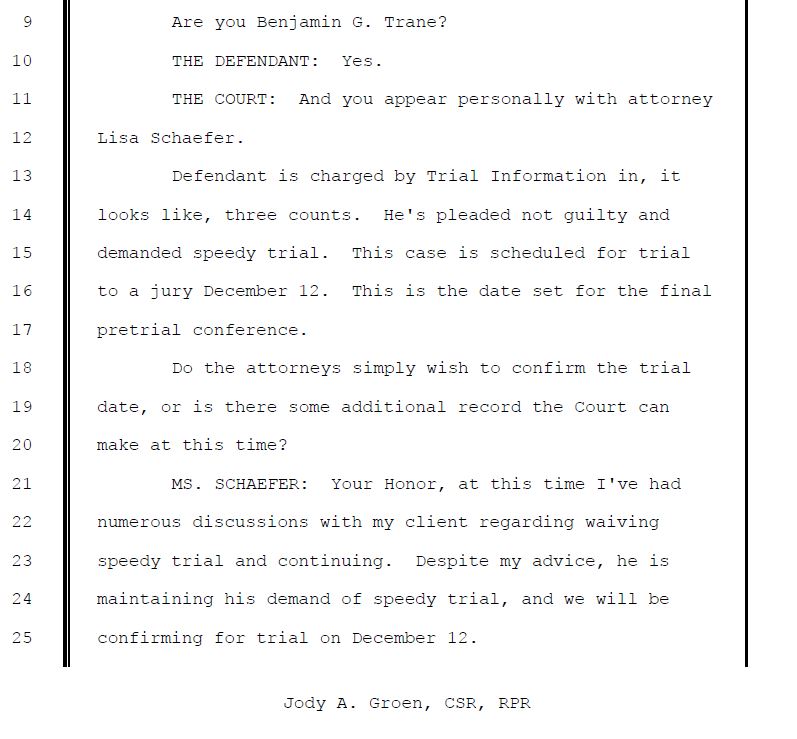
The prosecutor decided not to call two of their own witnesses. Schaefer stated that she thought their testimony would have been more helpful than harmful. Parrish complains about her not bringing up to the judge that these witnesses weren’t called and Schaefer responds that it’s her experience that a prosecutor can choose to call or not call their own witnesses if they wish.
A. I dont know what conversations Ms.Timmins had with them.
Q. Had you taken her deposition?
A. Yes, a day or two before.
Q. A day or two before?
A. Yes.
Q. And in taking her deposition, you determined that she was going to be helpful; isnt that correct?
A. Yes.
Q. You knew that Bxxxxx Gxxxx was going to be helpful; is that correct?
A. Yes.
Q. And you knew that Kxxxx Mxxxxxxx Mxxxx was going to be helpful; isnt thatcorrect?
A. I felt her testimony would be more helpful than harmful, yes.
Q. Now, when Ms. Timmins just told you in her direct examination questions that she would have these witnesses available, by her leading question and her professional way of asking this question to you, did you ever bring it up to the Court that Ms. Timmins had released these witnesses without talking to you and you knew that these witnesses were favorable to you?
A. No.
Q. Well, when Ms. Timmins just asked you that question at this hearing on her own without me asking this question earlier, why did you then continue to agree with her that all the witnesses who she said would be available would be here if you knew two of them had been released without talking with you? Why did you answer the question, yes, thats right,Ms. Timmins? Why did you just tell the Judge that?
A. I think my answer to Ms. Timmins was that it was the understanding that she would have them here and available.
Q. Well, if they were gone you would agree they were no longer available; is that correct?
A. I didnt know they were gone untilthey were gone.
Q. Well, thats the only time anybody knows people are gone; right? When theyre gone? They dont know anyearlier, until they disappear; right?
A. Yes.
Q. All right. So you knew they were gone. My question is, why didnt you gotell Judge Kruse that Ms. Timmins had violated the agreement that she made? Do you think he would have gotten upset with you?
A. I guess my practice as a prosecutor was you can choose to not call whoever you choose to.
Q. Well, but you knew they were favorable?
A. I did.
Q. And you had taken their deposition. We have a copy of the depositions right here, dont we?
A. Yes.
Q. And you knew she told you she would keep them there; isnt that true?
A. I dont think we had any specific discussions about keeping them here. The assumption was made that they would be here because I did see Ms. Bxxxxx Gxxxx, or whatever her name was.
Q. Well, you knew Mr. Trane wanted to call them, didnt you?
A. I knew what?
One thing to note: One of these “helpful” witnesses shared the following on her Facebook in regards to the Trane verdict:

Her mother is the one asking what the “perverted bastard” got. It appears she doesn’t believe Ben is innocent in her own opinion either.
Parrish asks Schaefer if she asked for a copy of the information on the sexual abuse victim’s phone. It should be noted that the sexual abuse victim did not have a cell phone while at Midwest Academy so what he’s essentially asking her is why she didn’t ask for the sexual abuse victim’s phone to be gathered and searched for evidence after the fact. Essentially Parrish wanted Schaefer to make the courts investigate the victim sexual abuse for the defense which is disgusting to think about.
Q. Did you review the Cellebrite of [sexual abuse victims]’s phone, the Cellebrite report?
A. The 1,500 pages that I reviewed were of his phone, Mr. Tranes.
Q. Did you review a Cellebrite report of [sexual abuse victims]s phone?
A. I dont recall ever seeing one. I dont recall.
Q. Did you ask for it?
A. No, I did not.
Q. Did you think that was significant?
A. I wasnt aware there was one of Ms.–[sexual abuse victims]s phone.
Q. You didnt even ask?
A. I didnt remember seeing anything in a report. And again, this is recollections from several months ago. I dont remember seeing anything that she had a phone that was seized or that there was one. The only Cellebrite report I saw was the one from Mr. Tranes phone that was 1,500 pages long.
Q. Youve heard the Court referring, and youve heard my record with regard to the speedy trial issue, and you brought that up to this court at the pretrial
Sentencing Part 2 – Lisa Schaefer’s Testimony

